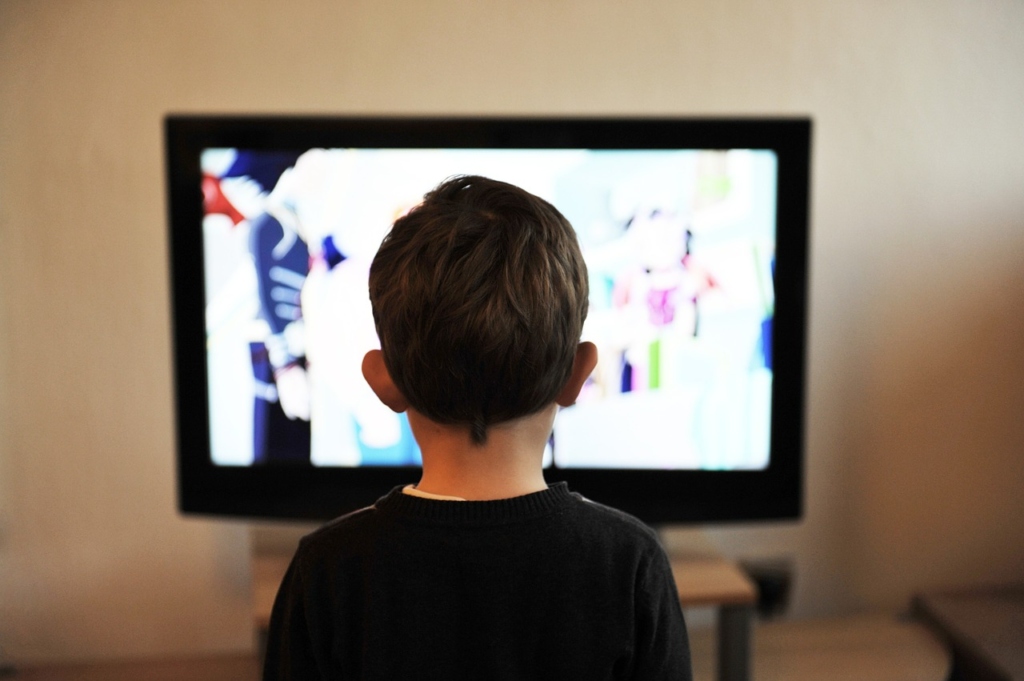Television Is Bad For More Reasons Than You Think
Recent decades have seen American culture move from “a TV in every house” to “a TV in every room.” With the rise in number of televisions in households comes a rise in their negative impact on families, children in particular.
We’ve all heard the studies touting the many negative effects of too much screen time: it makes it harder to sleep, contributes to obesity, aggression, and stunted social skills, and can cause vision problems, back pain, migraines, and arthritis. Even worse, Psychology Today combined a number of studies to prove that too much screen time actually causes brain damage.
If that’s not frightening enough, consider the fact that televisions pose another health risk that most parents are unaware of: the risk of serious injury. According to Today Health and Wellness, the number of toppling TV set injuries has gone up drastically in recent years, and these injuries can be quite dire, a “the heaviest TVs falling a meter onto a small child’s head is equivalent to the child falling 10 stories.” Sometimes, these injuries can be fatal.
Luckily, there are several ways to prevent injury to your children. First, make sure that television sets are mounted properly with the right size hardware. If your television or other large appliances are on a TV table or entertainment stand, make sure that they are of sound structure and that the TV or appliance fits atop with plenty of room to spare so it can’t slide off easily. Keep cords hidden so children can’t yank or pull them, and avoid placing toys or anything else a child might like near the TV as this may encourage them to climb up and grab the television.

Pool Safety Is More Than Just Surface Deep
We all know that pools pose a huge health hazard, even for children who are strong swimmers. Most are aware that they need to keep a close eye on swimming children in the absence of a lifeguard, and that any flotation devices should be properly inflated and fitted to avoid tragedy. Swift rivers and streams are no place for small children, and any sort of boating, kayaking, tubing, or water sport shouldn’t be ventured upon without a properly fitting personal flotation device.
Swimming pools can also contain unsafe germs and bacteria if they are not kept clean. But, did you know that swimming pools pose another serious health risk that most never talk about? The risk of skin damage or injury due to chlorine exposure is real. Children often want to spend a lot of time in the pool, all day if they could, but this isn’t good for their skin, scalp, hair, or eyes. While chlorine is necessary to keep pools safe and clean, it is also a harsh chemical that creates even harsher byproducts while it does its work.
If not utilized properly, chlorine can cause a number of skin problems, including: dry skin, rash, chemical burns, ulcerations, itchy/flaky scalp, and it can also irritate or exacerbate existing skin conditions. Furthermore, chlorine poisoning is a serious condition, and children can get it from absorption through the skin.
In order to keep your children safe from skin problems , or worse, it’s important to make sure that the chemicals are balanced in any swimming pool they plan to play in. Never let them swim all day, and if they are at the pool for hours, have them spend 10-15 minutes of every hour outside of the pool. Make sure that they shower immediately after swimming, taking care to use soap and shampoo to remove any chlorine residue from their bodies. Using a natural moisturizer afterwards can help as well, especially if their skin is dry or red.
Good Sleep Equals Longer Life
For many parents, making sure their children get enough sleep is a given. We’ve all heard how important a good night’s sleep is to our day-to-day health. From having a hard time getting kids up for school, to causing severe behavioral issues, lack of sleep can result in a number of health issues, both mental and physical.
If you asked parents why sleep is so important, they’d give you all sorts of reasons: I don’t want my kid to be cranky, they don’t eat well when they’re tired, they don’t perform as well in school, etc. But, one thing parents rarely say is, “I don’t want to lower my child’s life expectancy.” Not getting an adequate amount of sleep has myriad health risks, but surprisingly, sleeping less than 7 hours a night actually reduces your child’s life expectancy.
As parents, it’s very important to make sure we do everything in our power to keep our kids healthy on a daily basis, especially since what we do today can have a vast impact on how long they live in the future. In the end, all we can do is instill healthy habits and hope they continue them. If they choose not to follow them as grown-ups, a shorter life is in their hands. We as parents, however, should not be contributing to unhealthy habits that our children will pay for later in life.
If you want to make sure your kids are getting all the sleep they need, follow these age-by-age guidelines. Ultimately, every child is different, but there are a few things that are of the utmost importance for any child out of the toddler stage. Number one is routine: set a routine and follow it as strictly as possible. Of course, deviating by an hour on weekends or special occasions falls within these guidelines, but in the end, a regular bedtime regime at a set time every night is the best way to keep your kid’s sleeping habits on track.
Also, remember that until they are teenagers, they should be waking up on their own. If they need you or an alarm to wake them up in the morning, they are not getting enough sleep and their bedtime needs to be adjusted. Lastly, do your best to restrict their exposure to electronic screens the last two hours before bedtime. It has been proven that the blue light emitted from these screens messes with our vision receptors and our brains to discourage sleep in more ways than one.
Sharing Is Not Always Caring
It’s important to encourage children, especially young ones, to share their things with others as long as it’s not forced. However, there is a line when it comes to sharing that shouldn’t be crossed. Sharing things like toys, clothing, and food is usually alright, but using each other’s food utensils or drinking from shared cups can spread illness like wildfire.
Furthermore, adolescents are at an especially high risk of contracting serious infections if they share certain things. The teenage years are a time to learn and explore, while also creating bonds with peers. It’s very common for teenagers to share makeup and nail products, but this can be very bad news. Fungi, bacteria, and viruses that are common on the skin can be transferred easily through cosmetic brushes, so teens should always use their own.
Furthermore, eye makeup is particularly dangerous to share. Eye infections are more common than you think, and some individuals can have one and show little signs of irritation while others will suffer serious pain and impairment from the same strain. If left untreated, eye infection can result in permanent damage or even blindness.
Sharing nail polish shouldn’t be a problem, but items like nail clippers and files can harbor bacterial, viral, and fungal infections. Fungi can survive for long periods of time on latent objects, and it’s difficult to get rid of once it’s made a home in and around nail beds, toenails especially.
In order to prevent the spread of potentially serious infection and disease, you need to make sure that your children are aware of the dangers of sharing. If they are sharing nail equipment, make sure they sanitize it with rubbing alcohol in between turns. Make-up is very fun to share, but anyone who wears it should always use their own brushes, and clean them on a regular basis. Things like eyeliner and mascara should never be shared, no matter how tempting.
Safety First
As parents, we always have our children’s health and safety at the forefront of our minds, but it’s difficult to protect them from dangers that we’re not aware of, or ones we’d never even think about. I hope this article will help keep everyone aware of the potential danger that surrounds their children every day.
Have you run into any surprising or little-known health risks of your own? If so, please share them in the comments so we can discuss how to keep our children safe.
